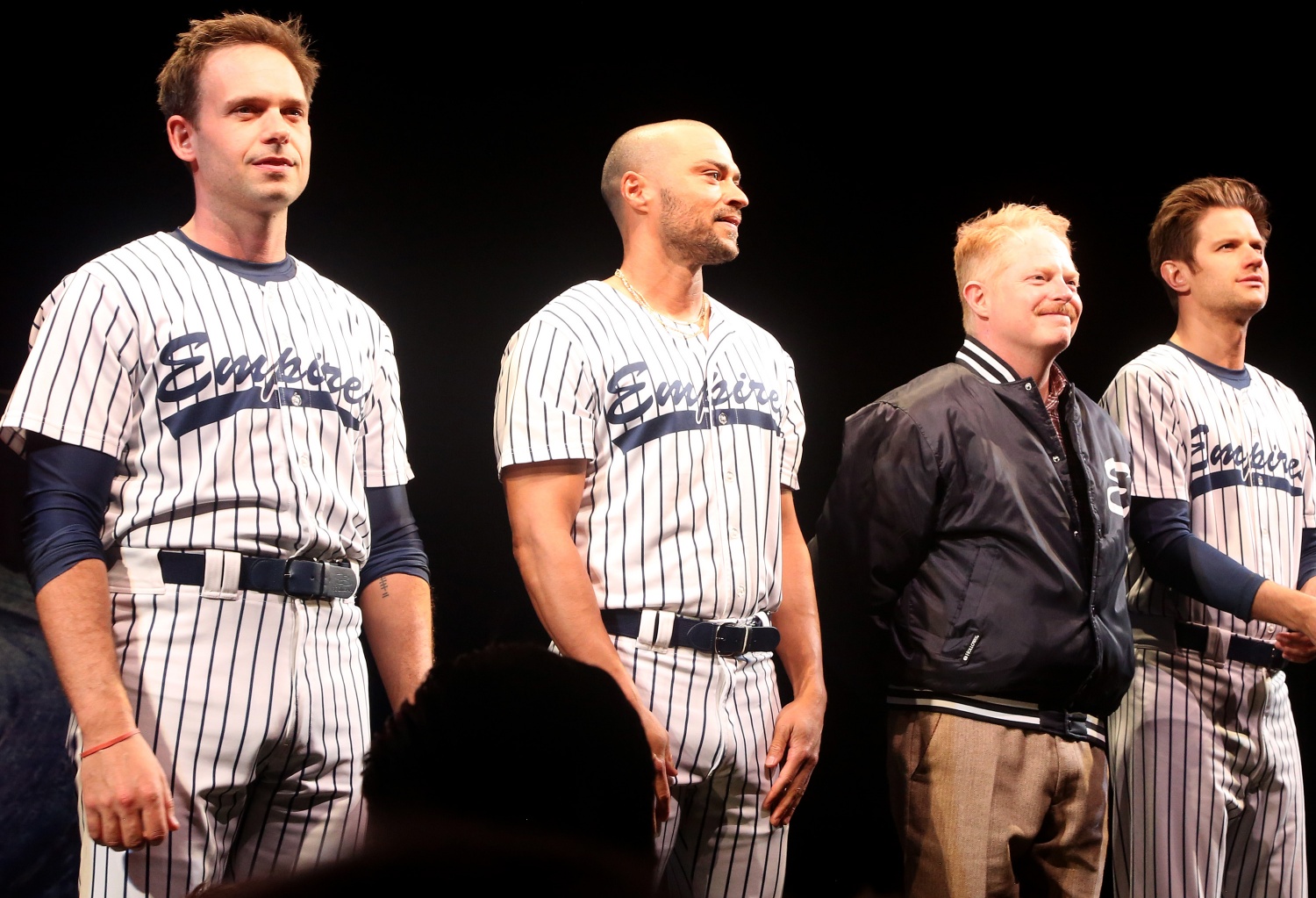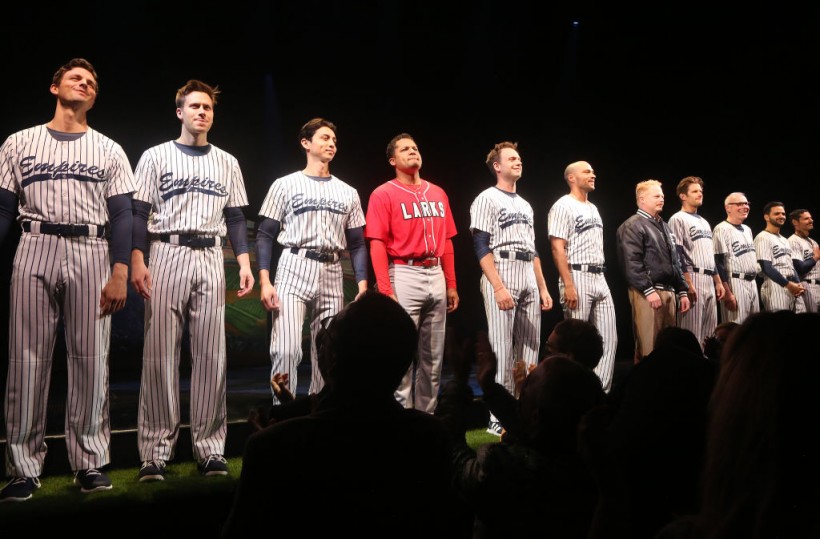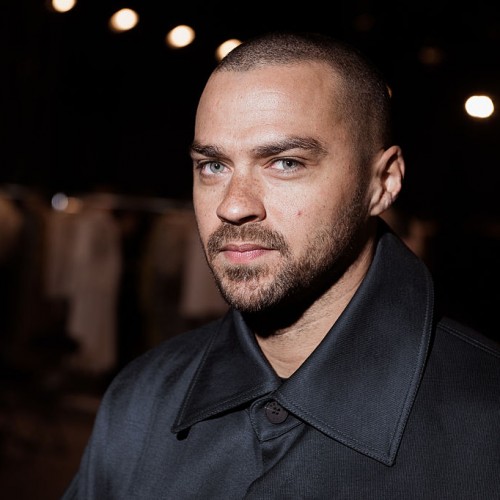Disgusting: The Illegally Leaked Full-Frontal Naked Footage of Jesse Williams in Broadway Show 'Take Me Out' Spits on the Trust Theater is Built On

Outrage is an understatement.
If you are one of the three people left that has not heard the latest news in explicit violation, here is a quick summary: Take Me Out is a Broadway play starring multiple outstanding actors, including Grey's Anatomy star Jesse Williams and Suit's Patrick J. Adams.
There is a scene in the play, hereafter referred to as "the shower scene," where Williams and Adams are onstage, completely naked.
To ensure the actors' safety in this powerful and exposing scene, extra precautions were taken by the theater to guarantee no footage of the shower scene was leaked to the public. Heightened security required audience members to hand in their phones at the start of the play. The play's attendees were informed of the reasoning behind this rule.
And yet, someone got a camera inside.

Naked footage of the performers - specifically full-frontal video of Williams - was captured during the performance and leaked online. Grey's Anatomy fans took to Twitter, jokingly thanking whoever was "brave" enough to capture the boot-legged clip, lauding them as a hero.
This is disgusting.
I am mad.
I am not only mad. I am repulsed by the hypocrisy of a population who, while outwardly championing the importance of consent, celebrates the harassment and exposure of another. Somewhere in the inflated moralism of the modern day, "actor" stopped falling under the protective linguistic umbrella of "human." The actions of this audience member, alongside the horrific heroization of them, stabs a social-media-serrated knife into the most vital components of American theater: Trust, safety, and magic.
Theater does not exist without trust.
There are theatrical traditions that patrons agree to when they sit down to see a show: They will not talk while the performance is going on. They will not run up on the stage to join the actors.
THEY WILL NOT TAKE PICTURES OF THE PRODUCTION. (That's right, this is a rule even when nobody's naked. If you weren't hired to take photos of the production, you shouldn't be doing it.)
In exchange for this trust, the audience memberscan trust that the performers will give a cohesive show. They will do their utmost to remain in character and in the moment, giving the audience the most immersive version of their story possible. This trust exists in conversation: if one party violates the trust, the other is unable to continue.
The trust required for theater to happen is greater than that required when renting a movie online, in the confines of your own home. You can talk through it. You can pause it and rewind it. If you decide to yell at the screen, questioning why a character would make a decision they are making, you are welcome to. When it comes to watching a film at home, there is no longer trust required. It is person with a product.
Theater, however, relies on the trust from human to human.

While actors may seem to be protected by the grandeur of the stage, the gears that are keeping the production turning are people. Films are able to create insular communities of trust, where art can exist, grow, and explore until it is packaged and sent into the world. The wonder and risk of theater is that it allows the audience to grow and explore with the performers - so long as the trusted roles are preserved.
When the demands for the actors change, the demands on the audience change. The balance makes complete sense. In most plays, one would likely be correct in assuming that none of the actors are going to take off all of their clothes. Intimate scenes, such as the shower scene in Take Me Out, take more from the actor. They require more boldness, more vulnerability.
It makes sense, at the most base level of trust, that, as the actors agree to be more open with the audience, they would ask that audience not to share that vulnerability around as if it were no more than a piece of hot gossip. When a friend tells you their deepest secret, they trust you are not going to run around sharing it with everyone. The same trust applies.
These actors trusted the audience. This trust was broken.
For those thinking, "But they're actors! If they didn't want everyone to see it, they shouldn't do it," please go home. No one wants you here.
Human beings want to share with others. It's the reason we tell each other secrets.
But if you told a friend a secret, and they told everyone, it does not mean that you should stop sharing. It means that friend has violated your trust. In buying a ticket, the audience member promised the actors that they could trust them. That trust was betrayed.
As the actor's union, Actors' Equity Association, voiced strongly in their statement regarding this incident:
"At every performance, there is a mutual understanding between the audience and the performers that we are sharing an experience limited to this time and place; that trust makes it possible for us to be exposed both emotionally and physically. Trampling on this agreement by capturing and distributing these photographs and videos is both sexual harassment and an appalling breach of consent. It is a violation that impedes our collective ability to tell stories with boldness and bravery."
Actors should be allowed to challenge themselves, to push the boundaries, to create more important and engaging theater. (Oh sorry, I didn't realize having boundaries that was a privilege that was revoked when someone reached a certain level of fame.) To add even further context to this disgusting action, Williams, prior to this event, discussed with Page Six that he was, in fact, "terrified," for this scene, but he was excited to push himself: "I was terrified...but then I noted that that was what I asked God for. I asked to be terrified. I asked to do something that was scary and challenging and made me earn it and made me feel alive and not comfortable."

The audience member that took this video took an actor's courage and distilled it into a distorted tabloid topic. If someone welcomes you in, to watch them take new and personal risks, to share, to create art at a level that challenges both audience and performer, you do not exploit that trust. Not only has the trust of the performers been broken, but the safety they felt during the performance has now been forever compromised as well. TAKING THE PHONES AWAY WAS A SAFETY MEASURE. It was not something that was done simply because the theater thought they should. Second Stage Theater has spoken out in the aftermath of this incident, calling on everyone to stop sharing the contraband footage.
The actors did not want footage taken of this scene. Adams reflected in an interview with Daily News that having the phones taken away was an important part of the security they felt during the scene.
"That alone is the greatest gift, of having the phones away. It's certainly nice to know that we're safe on stage, being naked and not being recorded. But that people are connecting is a great byproduct of that."
That safety can never be regained. RETURNING AGAIN TO THE SECRETS ANALOGY: if a friend told your deepest secret to everyone, you would likely not run to tell that friend any more of your classified information.
For these actors, it is their job to keep telling that secret over and over again. This violation has, on a human level, given the actors something to keep in the back of their minds that will be difficult to escape: the safety and trust they thought was there was an illusion. It does not exist.

Being completely open and vulnerable with that updated knowledge in mind is now an entirely new - and enormously unfair - challenge.
Despite the best efforts of the theater, someone still managed to do EXACTLY what was EXPLICITLY prohibited.
Also, taking a video of someone who is naked who POINTEDLY asked you NOT to take a video of them IS SEXUAL HARASSMENT. One more time for those in the back:
IT. IS. HARASSMENT.
The theater is a magical place. It is an art form unlike any other. It is magic. Actors, in real time, invite you into a world of fantasy. This fantasy is built on a framework of trust and safety.
Taking and distributing this footage ruined that magic.
It tears down the fourth wall, taking down the characters and exposing the actors in a way they did not agree to.
The carefully woven excellence of a show, specifically that of a masterpiece such as Take Me Out, crafts moments specifically. Context is crucial in creating theatrical magic. Now that this scene has been taken out of its curated context, it is now being received by many as a tawdry piece of gossip, thereby unfairly undermining the integrety of the show.
The important message of this show is now being maligned by someone with the comedic sensibilities of a fifth grader.
Theater is magic. If you are coming to the theater just to ruin the magic, why are you here?
Moreover, the fact that this happened WITH heightened security in the theater is even more maddening, for it shows that this person was determined to acquire this footage. It can in no way, shape, or form be cast off as a mistake, or a simple ignorance of the rules.
With every hoop this person jumped through, they disregarded the humanity and boundaries of the performer, bolting further and further away from respecting their personhood, violating the trust created in the theater.

Finally, Take Me Out is Jesse Williams's Braodway debut - a debut for which he received a Tony nomination. That is incredible, and speaks to the sensational quality of his performance. We should be talking about that - his bravery, his authenticity, and his non-negotiable talent - rather than making light of the fact that his consent was violated and that violation is now all over the internet.







